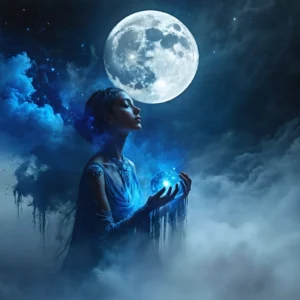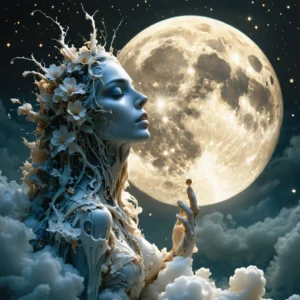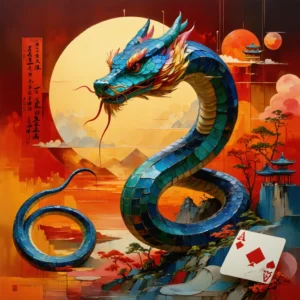
Introduction to Africa’s Ritual Heritage
In the heart of the African continent, ancient rituals weave the fabric of communal identity and cultural continuity. Communities celebrate life and transcendence through time-honored ceremonies that intertwine spirituality, tradition, and nature. Historically, these rituals emerged in unique ways, and today they captivate anthropologists, historians, and travelers alike. Moreover, local elders and priests guide ceremonies that echo ancestors’ wisdom while adapting to modern challenges.
Rituals of Initiation and Transition
Coming of Age Ceremonies
Young individuals experience profound transformation during initiation rites that mark their passage into adulthood. Many tribes, such as the Maasai and Zulu, design initiation ceremonies that involve symbolic tests, storytelling, and performance of sacred dances. These ceremonies require community participation and foster resilience and respect. Additionally, elders impart essential life lessons and cultural values. As a result, the young celebrate new responsibilities and learn the power of unity.
- Symbolic body painting
- Traditional dances
- Storytelling sessions
Furthermore, the ceremonies instill self-discipline, artistic expression, and spiritual awareness.
Transition Rituals Among Nomadic Tribes
Nomadic tribes throughout Africa embrace transition rituals that mark seasonal migrations and communal gatherings. Guided by ancestral knowledge, they engage in chants, drumming, and meditative periods. In addition, the experience reflects deep connections with nature and embodies social rebirth. These rituals sustain traditions, and each movement in the ceremony connects participants with the ancient pulse of the savanna.
Ceremonies of Healing and Divination
Healing Rituals: Reconnecting with Nature
Traditional healing rituals capture the essence of holistic well-being. Healers, often known as sangomas or herbalists, use a combination of medicinal herbs, spiritual incantations, and communal support. They prepare elaborate potions and perform cleansing rituals that integrate ritual music and dance. Consequently, the community feels rejuvenated and united, as members follow timeless practices that confront physical and emotional hardships. Notably, these healing ceremonies emphasize the balance between humans and the natural environment.
- Herbal remedies
- Spiritual cleansing
- Communal dance sessions
Thus, participants gain renewed strength and insight by reconnecting with nature’s energy.
Divination Practices and Ancestral Guidance
African divination traditions derive from a deep-seated belief in ancestral guardians. In many regions, priests use sacred objects such as cowrie shells, bones, or intricate carvings to interpret messages from the spiritual realm. During the sessions, patrons receive guidance that influences crucial life decisions. Moreover, the divination process harnesses intuition, analytical reasoning, and centuries-old wisdom. Notably, recent practitioners blend modern theory with ancient methods, thus preserving the rituals while embracing contemporary perspectives.
- Reading cowrie shell patterns
- Interpreting ancestral dreams
- Understanding nature signs
Consequently, the rituals maintain their relevance by guiding the community in times of uncertainty.
Festivals, Celebrations, and Social Unity
Community Festivals and Ritual Dances
Across Africa, festivals serve as extraordinary expressions of cultural unity. People gather to perform traditional dances, sing age-old songs, and engage in playful competitions. In Kenya, Ethiopia, and Nigeria, colorful masquerades and rhythmic parades define the festival atmosphere. Moreover, these events stress the importance of fellowship, resilience, and pride in communal heritage. The celebrations integrate modern choreography with traditional movements, thus illustrating the evolution of ritual practices alongside contemporary creativity.
| Country | Festival/Ritual | Key Elements |
|---|---|---|
| Nigeria | Eyo Festival | Masquerades, Processions, Drumming |
| Ethiopia | Timkat | Baptismal Rituals, Processions, Ceremonial Dips |
| Kenya | Maasai Jumping Dance | Physical Feats, Traditional Songs, Body Adornment |
Undoubtedly, these festivals promote storytelling with vibrant colors and rhythmic beats.
Ancestral Worship and Spiritual Meditations
Communities across Africa dedicate distinct rituals to honor their ancestors. They construct sacred altars and perform meditative chants that invite ancestral presences. Frequently, families organize annual gatherings at burial sites or ancestral shrines, where they offer food, beverages, and incense. These practices generate spiritual energy that nurtures both individual well-being and collective memory. In addition, traditional songs and poems often accompany ceremonies, ensuring the continuity of ancestral legacies. Moreover, the rituals enhance the community’s bond with time immemorial traditions, paving the way for social harmony.
Modern Adaptations and Cultural Resilience
In recent decades, African rituals have witnessed significant adaptation. Communities continue to honor ancient practices while integrating modern elements such as sound systems, camera technology, and social media documentation. Young people embrace these adaptations because they enable global sharing of unique cultural expressions. Furthermore, international festivals and cross-cultural events help preserve these rituals and foster intercultural dialogue. Actors from diverse sectors actively promote awareness and research. Meanwhile, governmental and non-governmental organizations support cultural preservation initiatives, demonstrating a profound commitment to protecting the rituals for future generations. This synthesis of tradition and modernity offers hope and continuity for the vibrant heritage of Africa.






